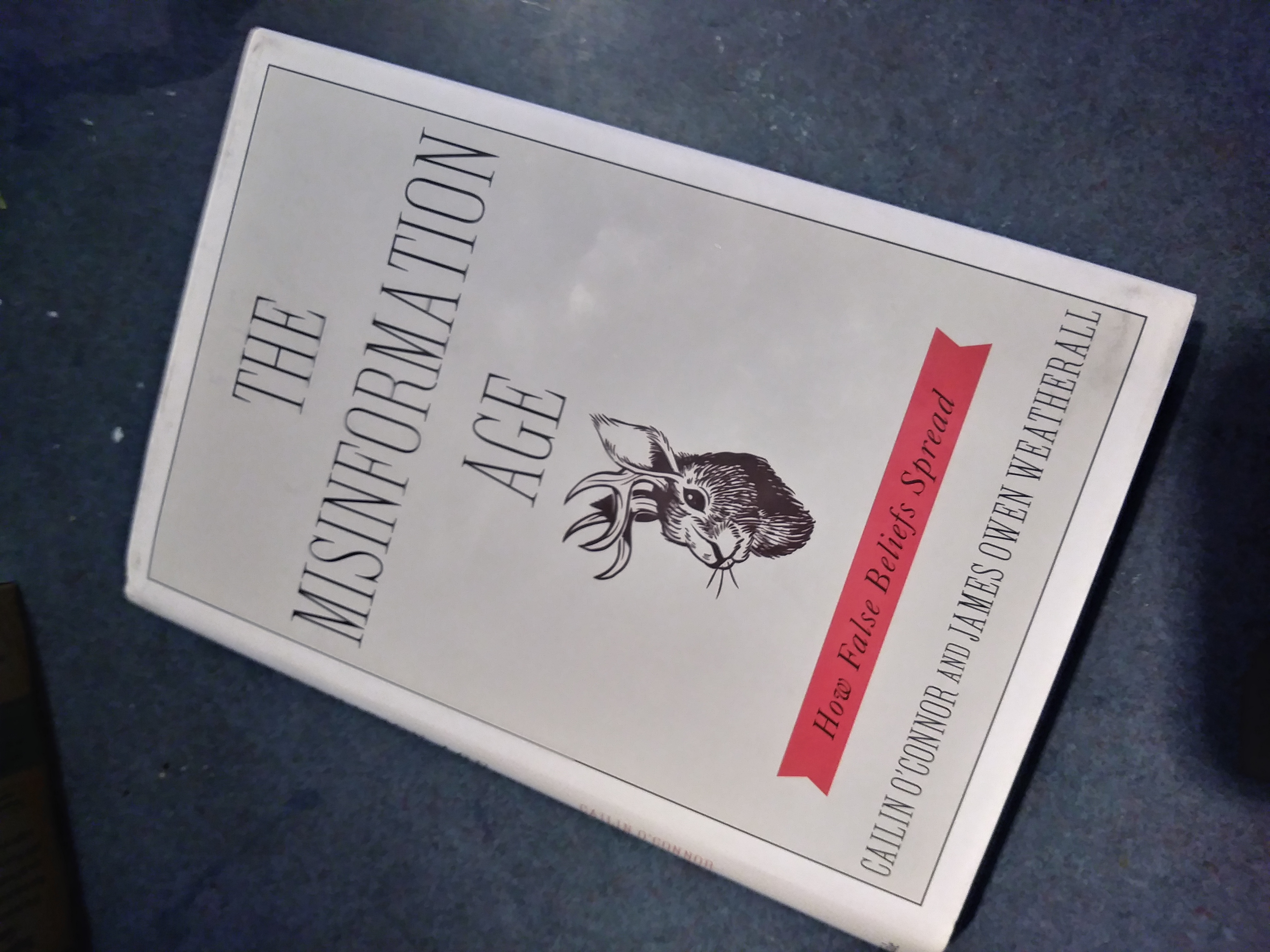DECEMBER 13, 2019 – Several years ago I read Daniel Kahneman’s brain-altering book, Thinking Fast, Thinking Slow. No other book affected my thinking—however fast or slow—as much . . .
. . . until I read The Misinformation Age by two philosophers of science, Cailin O’Connor and James Owen Weatherall. The text is only 186 pages. The notes and bibliography cover another 66 pages.
Despite the book’s brevity, the subject matter is so dense, I had to take each concept in small bites, chew carefully and digest with undistracted concentration. By the end of the book, I felt as though I’d been transported to some far-off observatory for an unusually critical view of democracy.
I urge you to get your hands on the book and plow through it. You’ll feel the effect on your brain, and you’ll never again see or hear information the same.
Much of the book uses examples in the world of science to reveal how information is packaged—and how “wrong answers” can form, organically or intentionally. The authors’ underlying assumption is that scientific inquiry and method are aimed at “getting the right result” and usually do. But often the “wrong result” is achieved, and the authors explain meticulously how that occurs. Just as you’re feeling properly schooled, the authors give you whiplash by revealing that the opposite approach from the one that had led to the “wrong result” can also lead to a “wrong result.”
Via fascinating case studies, the authors also reveal how scientists and research can be manipulated by “propagandists” and derailed by “contrarians.” Once you see how information works in science, you begin to understand how misinformation works in social and political arenas.
As I studied this book, I was forced to confront my own ignorance; the impossibility of grasping, synthesizing, identifying bias, and critically evaluating sufficient information about what’s going on in the world to form a truly educated opinion about much of anything. Yet, I reminded myself, I express with confidence my uneducated opinions.
The authors’ warning is no surprise. They conclude that the issues of our day can’t be addressed effectively by “vulgar democracy”—wherein most voters have no idea what they’re talking about; a tyranny of ignorance, misinformation, and manipulation. The authors acknowledge that proposing a new form of government is (proverbially) “beyond the scope of [the] book” but espouse a first step: “abandon the notion of a popular vote as the proper way to adjudicate issues that require expert knowledge.”
The authors quickly reject, however, an “expertocracy.” They argue for something in between but leave it to political scientists to devise it. Frankly, I felt as though the authors had revealed a serious malfunction in the burner for our hot air balloon of “vulgar democracy,” then thrown up their hands. However brilliant their break-down of the break-down, they were clueless as to how we switch midair from hot air to lighter-than-air gas.
“Great!” I said to myself, as I closed the book . . . and watched the ground approach.
(Remember to subscribe to this blog and receive notifications of new posts by email.)
© 2019 Eric Nilsson
